There are two kinds of preppers: the ones that are stockpiling through the roof, and the ones who rely mostly on their knowledge of survival skills.
The two schools of thought need not be exclusive, but I think just about everyone agrees that no matter how much gear you have, if you don’t have the knowledge and skills to use it, that gear will be useless.
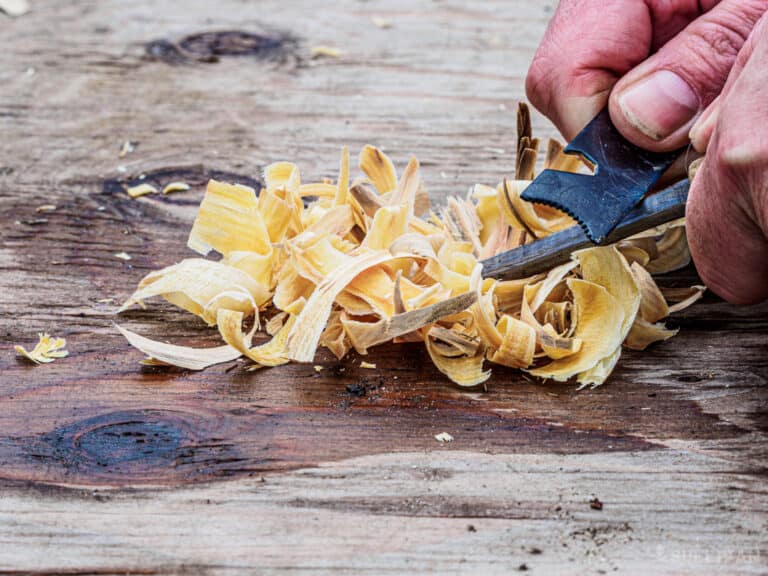
In this article, we’ll make a comprehensive list of survival skills you may need to learn and practice before and after SHTF. It is up to you to figure out which of these is more important for your unique situation.
Tip: always keep in balance your stockpile and your survival skills. You need both! Don’t focus exclusively on gathering food, with the intention of learning these skills at some point in the future. Disasters can happen at any time so you don’t really know if you will have time.
The key is to focus on the essentials first and continue from there.
So let’s get started with the list, shall we?
BASIC SURVIVAL SKILLS
Finding Water
Streams, rivers, and lakes are good places to find drinkable water but what if you can’t find any? Animals need water as much as we do, so if you are able to follow an animal trail, it can lead you to water. Rainwater and dew also safe to drink. SO is the water that accumulates by digging a hole in a muddy area.
Of course, you should always filter and boil or distill your water to drastically decrease your chances of getting sick.
Water Purification and Filtering
Water purification can be done through boiling, using purification tablets or a water purifier, or even making your own multi-level water filter using a bottle, cloth and different types of filtering agents (small rocks, charcoal or sand).
Finding a Suitable Campsite
The place where you will build a shelter should be as dry as possible. Choose a spot near trees to protect you from wind and lightning (as long as you don’t make it next tot he tallest tree). Keep in mind camping too close to water can put you at risk during a flood and can drown out voices and sounds and may leave you vulnerable to predators either human or animal.
Starting a Fire
There are numerous ways to start a fire. The survival skill that sparks the most interest is starting a fire with no means of ignition. This is called the bow drill method and is probably not something you’re going to actually use if you’re fully equipped with matches, lighters, and magnesium stick. It is very useful to know if you are caught without supplies.
Crossing a River
If you’re alone, you’re gonna need a strong pole or stick. If you’re in a group, you need to do it together to prevent each-other from falling. The problem is not the technique but your assessment of whether or not you can do it. One of the most important skills is knowing when NOT to cross a river because it is unsafe.
Reaching Your Friends, Family, and Emergency Contacts
If you haven’t thought about how to communicate with family, friends, and emergency contacts, it’s time to start. Traditional means of communication may be useless in a SHTF scenario. Planning ahead with your group and knowing how you will communicate is one of the most important survival skills.
Basic Self-defense Moves
You don’t need fancy martial arts movements in order to defend yourself from an attacker. Anything can be used as a weapon and even if you don’t have one knowledge of basic self-defense moves can make the difference and help you escape.
Using Various Objects as Signaling Mirrors
There are lots of ways to signal other people that you’re lost and are looking for help. For most situations, a simple mirror or a whistle will suffice. In remote, isolated areas, starting 3 fires positioned in the form of an isosceles triangle and wearing bright-colored clothing are good visual signals.
Knowing Bad Weather is Coming
Knowing how far away the storm is will help you better prepare for what’s coming. This skill is particularly useful if there’s going to be lightning as well.
Putting Out a Fire!
Putting out a fire is no big deal but it’s one of the important survival skills. You know what happens if you don’t do it so I won’t rehash that here. What’s more important is knowing how to put out a fire when you have NO water.
Few people know, for instance, that baking soda is great for putting out fires because, at high temperatures, it releases large amounts of carbon dioxide (CO2). And, since fire needs oxygen to spread…
Fixing Your Tent
HUNTING & FISHING
Making Snares
Snares are useful to hunt for small game such as squirrels and rabbits.
Of critical importance is knowing where to place the snare to maximize your chances of catching something, which is why knowing how to read animal tracks is important.
Reading Animal Tracks
Reading animal tracks is not only useful when making snares but also if you’re looking for water. Plus, if there are bears or other dangerous creatures nearby, this is one of those survival skills you’re going to want to know.
Fishing Using Various Methods
Spears, poles and even with your bare hands – there are plenty of ways to catch fish if you have the know-how.
Shooting a Sling Shot
ON THE MOVE
Staying Hidden
Staying hidden is a matter of life and death. It doesn’t matter if you’re in out in the wild or in the middle of a large city. If you want to escape the impending danger, not attracting attention to yourself is paramount.
Things like wearing camo or a black hoodie, driving too fast, or even having a gun in plain sight, could get you in a lot of trouble.
Reading a Topographic Map
If you can get your hands on a topographic map of where you live, that’s excellent. You can go on a little trip with your survival dream-team and explore your territory. The 3 things you need to know about reading topographical maps are colors, shading, and contour lines.
I’ve actually come into contact with these maps from a very young age as my dad (now an army veteran) use to bring them home every night after work and draw strategic marks on them. Needless to say, it was only a matter of time until I started drawing myself.
Getting Out of a Riot
Riots are dangerous particularly if you’re caught in the middle of one unexpectedly. You need to stay away from tear gas, you need to know how to handle angry mobs if they start targeting you, you need to know how to get home, and then how to decide whether it’s best to bug in or out.
Finding Your Way Back
Finding you way back is a combination of how well you can orient yourself into space and remember landmarks and being able to leave trail marks. It’s preferable that you leave marks that are not easily noticeable, just in case someone is trying to follow you.
Getting Out of A City
We all know large cities are death traps. Escaping the city is all about knowing the secondary routes, having maps, knowing HOW you’re going to travel (by car, by bike, by foot) and practicing it. The next time you leave town, take one of these secondary routes to familiarize yourself with them.
Escaping Buildings
If we’re talking about your house, then you need to have several escape routes, including one from your safe-room. Make sure you have a way of climbing down if the window is not at ground level and that your chosen routes are not blocked by anything that could turn into obstacles when running.
If you’re trying to escape another building (maybe you’re the victim of a terrorist attack?), you need to always pay attention to where all the exists are.
Dealing With Angry Mobs and Protesters
The two rules of thumb are to #1 don’t stand out (and try to move in their direction, not against it) and #2 to give them something if they’re asking (money, guns, food etc.).
Don’t be a hero when you’re outnumbered and vulnerable. Also, keep in mind the police might mistake you from one of the rioters if you aren’t careful.
MEDICAL
Knowing the basics of giving first aid or using your first-aid kit is one of the extremely important survival skills. Survival medicine post-collapse is going to be a life saver. Here’s a list of all the things you should know:
- Giving First Aid
- Performing CPR
- Carrying a Wounded Person
- Treating Sunstroke, Hypothermia, and Dehydration
- Treating an Open Wound
- Treating Scrapes for Infections
- Splinting a Broken Limb
- Treating a Leg Fracture
- Recognizing and Using Wild Medicinal Plants
- Treating a Bullet Wound
- Treating a Knife Wound
- Treating a Bite
- Epidemiology (infection control)
- How to Suture a Wound
FOOD, COOKING & HOMESTEADING
Baking Bread
Baking Without Powder
Growing and Drying Herbs
Dehydrating Foods
Smoking Foods
Pasteurizing Milk
Gardening Skills
There’s so much to be said here I don’t know where to begin. From learning to use all the gardening tools (such as shovels and hoes) to growing, watering, and harvesting all the plants that grow in your climate.
Growing veggies, for instance depends by your climate, your soil type, the amount of space you have available in your back yard and your family’s needs.
Making Homemade Remedies
Making Cheese
Building a Raised Bed
Composting
Composting is easy. You just have to learn to recycle things like scraps and waste. There are several type of composting such as aerobic, anaerobic and vermicomposting.
Harvesting Seeds For Future Crops
To ensure you get the best crops next year, you should always select the best-looking plants from your crops. It’s natural selection… with a little help from you. There’s more to all of this than meets the eye, of course.
Making Playdough
Freeze-Drying Foods
Freeze drying, in short, means freezing the food (using a vacuum chamber or a fridge) and then placing it in a strong vacuum. The trick as to why this works is that, once the food warms up, the ice inside it turns into vapor and is simply drawn out of it.
Canning Food
There are two types of canning: the water-bath method and pressure canning. Water bath canning only works with high-acidic foods. Make sure you do your research and practice this carefully.
If you don’t do this right, you risk getting a deadly illness called botulism that is very hard to treat, particularly when you don’t have a doctor by your side.
Cooking on an Open Fire
Of course, it very much depends on WHAT you want to cook. Is it soup? Or a fish? Or potatoes?
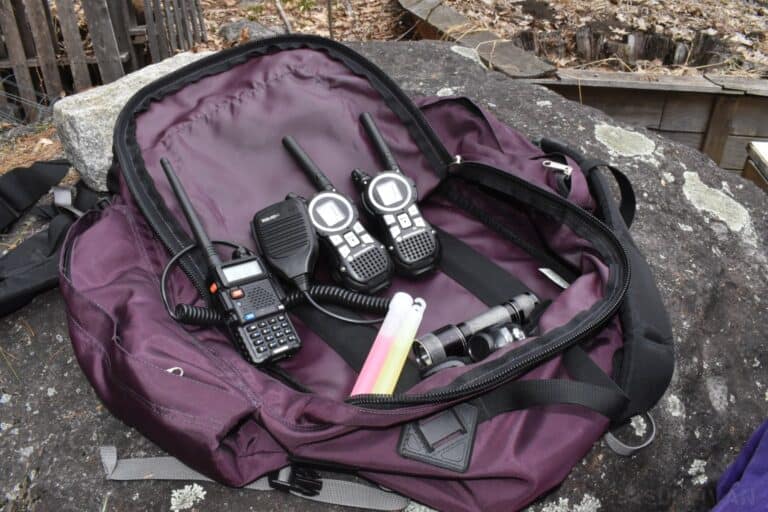
COMMUNICATIONS
Using a HAM Radio
Using non-conventional writing methods
What if you don’t have a pen and paper, you’re gonna have to learn to improvise. For example, did you know that duct tape is excellent to write on provided you have a marker?
MENTAL
Conserving Your Energy
Saving your energy is critical, particularly if you don’t have enough food. And even if you think you do, who knows how long until things go back to normal? It could be months, even years.
Being Mentally Strong
Mental toughness is not something you read about. It’s something you practice. In order to achieve it, you must:
1. Hang around people who are like that
and 2. Put yourself in difficult or even adverse situations that match your skills and levels of expertise.
Leadership Survival Skills
People will need leaders post-SHTF. Learn to become one right now. The easiest way to begin is to take on more responsibility at work and to encourage your colleagues to work harder and raise their expectations.
Managing Boredom and Loneliness
It all comes down to being comfortable being alone. If you you feel anxious when you’re all by yourself, practice relaxation techniques and find little ways to keep yourself entertained. And the best way to do that when you don’t have a smartphone or Facebook is to use your imagination.
OPSEC and COMSEC
It’s one thing to let everyone know you’re prepping and why, so you can convince them to join your cause but it’s another to let them know what your plans are and how much food, water, and guns you have accumulated. It’s hard not to brag but you just have to do it.
Motivating People
Motivation is not one of those weird self-development skills that only certain people have. It’s about wanting something really bad, something that other people want.
It’s about wanting to make it happen so quickly that you can’t stand how slow and inefficient current progress towards the goal is. It’s about being willing to lead them so you can all get there faster.
Goal-Setting
You need to set immediate goals right after disaster hits. After that, you need short and medium-term goals.
Self-Reliance
Finding Like-Minded Neighbors, Friends and Colleagues
Convincing Others to Start Prepping
WEAPONS
Shooting a Gun
Shooting a gun is all about the type of firearm you have and how much you practice. But you have to prepare for the event in which you’re going to shoot a gun different than your own. Ideally you’ll want to practice with both pistols and semi-automatics to get the hang of it.
Cleaning a Gun
Cleaning a gun will not only increase its lifespan but it can also prevent it from misfiring and causing injury. You need the right tools. Gun cleaning kits are not expensive.
Zeroing a Gun
Zeroing applies to rifles and is not hard at all. You shoot at a target and fire your first shot. Then, you just have to move the elevation and the windage turret until they’re pointing to where the bullet hit. Then fire another shot and see if it was accurate. You may have to do this a few times to adjust it perfectly.
Making Basic Weapons
INTERMEDIATE SURVIVAL SKILLS
Splitting (Fire)wood
Splitting firewood is easy if you have an ax but what if you don’t? Depending on the thickness of the branches you have at your disposal, you’re gonna want to use your knee or your foot.
Now, if you have an ax and a real tree to split (not just branches), there’s a log splitting technique you need to apply if you want to do it with minimal energy. Once the tree has been cut into logs of 15-20 inches in length, set up a chopping block, place the log and hit it dead-center.
Stand with your legs apart and make sure there’s nothing and no one that might be hit by flying splinters. Take the resulting pieces and keep splitting them by hitting them dead-center until they’re of the desired thickness.
Climbing a Tree
Climbing a tree is useful when you’re trying to ditch a wild animal, or even hide from a person. In addition to the tree climbing technique, you’re also gonna need to learn to avoid dead and unstable branches. Also, if the chosen tree has insect nests in it, you’re probably going to want to pick another.
Making Mosquito Traps and Repellents
Milking a Cow or a Goat
People have been doing this for a long time. It can be difficult at first because you have to squeeze and pull harder than you’d expect, but practicing makes it easier and will give you quite a wrist workout.
Installing Plywood on Windows
There’re two ways to install plywood on all your outer windows (whether it’s to protect from a hurricane or tornado or to make your house look abandoned). Use nails or use clip-ons.
The only other thing you need to remember is to cut the plywood in the right size for each window. The size depends on which of the two methods you use to attach it.
Cutting a Tree
Whether you’re using an ax or a chainsaw, cutting a tree can not only be dangerous but also illegal. First, there’re a number of things to be careful of, such as the inclination or whether or not there’re any dead branches, whether the drop-zone is clear, and even the direction in which the wind is blowing.
There are angles and distances you need to consider so don’t take this is one of those survival skills you shouldn’t take for granted!
Washing Clothes
Washing clothes is not as hard as you think. All you need is a plastic basin, some detergent, and to make sure the water temperature is according to the recommendations on the label.
Whether or not you can scrub depends on the fabric. It’s probably best not to do any heavy scrubbing to avoid damaging the item. You’re going to need a second tub of water where you can rinse the detergent and a way to hang the clothes up to dry.
Making Homemade Laundry Soap or Detergent
Homemade soap is healthier than the soap you can purchase because it’s free of many of the chemicals that can induce a number of illnesses, including cancer. Sure, the effects are very small but what if?
There are a number of recipes out there. If you want, there are even recipes that give it certain scents (such as lemon).
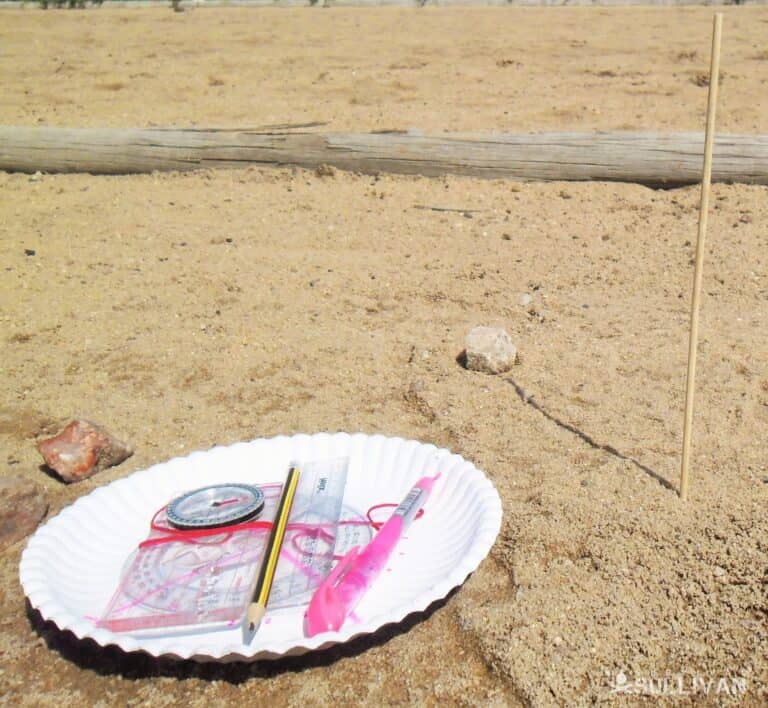
Navigation Without GPS
When there’s no GPS available, you have be able to use a compass, a map and even the moon and the stars, to tell which way is north and get to your destination.
Sharpening Various Cutting Tools
The most obvious thing you’re gonna want to sharpen is your knife. You can use a diamond stone or a honing rod. Make sure you have them on hand before SHTF as they’re probably going to be very hard to procure afterwards.
Building Shelter
Whether you’re going to use a cave, make an igloo, or use a fallen tree, you have to know the main types of shelter and realize the importance of keeping your body dry and warm to prevent hypothermia during the night.
Opening Cans and Bottles Without an Opener
To open a can without an opener, you can use a knife with a strong blade. (This is something I actually did many times growing up.)
Another way is to use a bread knife and cut it just like you would a loaf of bread. Heck, you can even rub the top of the can back and forth over a rough surface or use a hammer and a chisel to open it!
There are tricks to open beer and even wine bottles without an opener, you might want to study those as well.
Grooming Without Modern Products and Conveniences
Survival skills like using baking soda to brush your teeth, cutting your own (or your family’s) hair, and maintaining good overall hygiene will ensure you won’t fall victim to the different illnesses that will plague the country once disaster hits.
Successfully Identifying Edible Plants
The best thing would be to simply memorize and know what each common edible plant looks like. Chances are you won’t need these survival skills that much but… you never know. It’s actually easier to learn the poisonous plants because they’re much more numerous.
With mushrooms, however, things will get pretty tricky. When I was little, I used to spend days with my grandparents gathering mushrooms. But the thing is, they knew very well which mushrooms are safe because they’ve been doing this their entire life!
If you can, avoid mushrooms altogether and find other plants to eat.
Sewing, Kitting, Quilting, Crocheting
These might seem like survival skills more appropriate to women but you never know when your clothes are going to give out. You need to sew the holes in a way which will prevent them from tearing open again anytime soon.
Telling Time without A Watch
Telling time is difficult for some people even when they have an analogical watch!
Without a watch or a clock you can use the sun, the moon or the north star to tell time.
WOODWORKING
Hammering a Nail
Hammering a nail is just as much about getting the nail straight as it is protecting your fingers. I’ve had quite a few accidents while practicing as a kid but grown-ups are much more careful and much less likely to get injured.
Caveat: if you have poor vision, make sure you have enough natural or artificial light available before you do this.
Flint knapping
Building a Beehive
Making a Greenhouse
Making a Chicken Brooder
Building a Fence
How to Use a Saw and a Chainsaw
Making a Chicken Coop
Building an Aquaponics System
Constructing a Meat Smokehouse
Making an Improvised Rope…
…from plants, duct tape, clothes etc.
natural ropes – LIANAS, VINES AND CANES
Climbing With a Footlock
Abseiling
ADVANCED SURVIVAL SKILLS
Making a Rope Bridge
… because trying to cross the river any other way is simply too dangerous.
Mechanical Aptitudes
Post-SHTF, there might not be anyone to help you fix your vehicle or tractor.
Escaping Quicksand
Think the way to get out is to get your friends to pull you out? Nope. Don’t try to take one big step with one foot, either, as it will cause you to sink with the other one. One trick is to lay back (just like you would in the swimming pool) to take pressure off your legs.
Next? Simply swim on your back. Use your arms and even wiggle your feet to get yourself out.
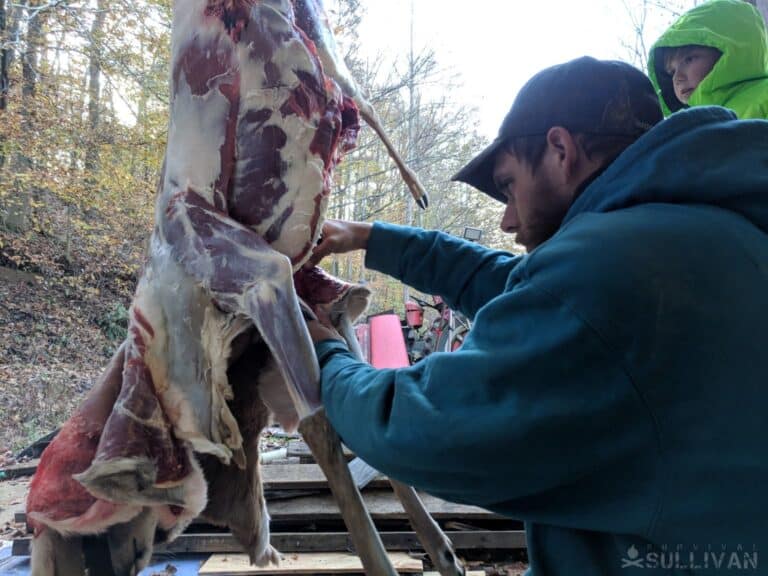
Butchering an Animal
The best way to go about this is to simply let someone who’s doing this show you. It’s not really for the faint of heart and the last thing you want to do is give the animal a slow, agonizing death.
Gutting an Animal
Plumbing
Welding
Electrical Skills
Fixing appliances, knowing point to point wiring methods, installing a series of parallel circuits, motor rewinding, etc are all very useful backyard survival skills.
Using a Sewing Machine
Construction Skills
Assisting a Birth
Working With Metal
Working With Clay (Pottery)
Timekeeping
How to Dig a Well
Building Boats and Rafts
Brick-making
Plucking a Chicken
Making Paper
Meteorology
Making Candles
Making an Oil Lamp
Making a Solar Lamp
Grinding Wheat
OTHER
Horseback Riding
Saving Money
Tan Hides
Getting Free Electricity
Bartering and Negotiation
Fixing Clothes
Besides basic pattern sewing, other helpful skills you’re going to want to know are how to repair your shoes, how to strengthen certain clothes (such as your pants), and much more.
Making Bags and Baskets
Making Homemade Beauty Products
Planting a Tree/h3>
Trees can be a good way to provide you with free fruits and nuts. You need to make sure you have the right soil and the right type of tree before you start digging.
Learning a Second Language
Spanish if you might be heading south (to escape a disaster or for bartering purposes), French if you might be heading North into Canada.
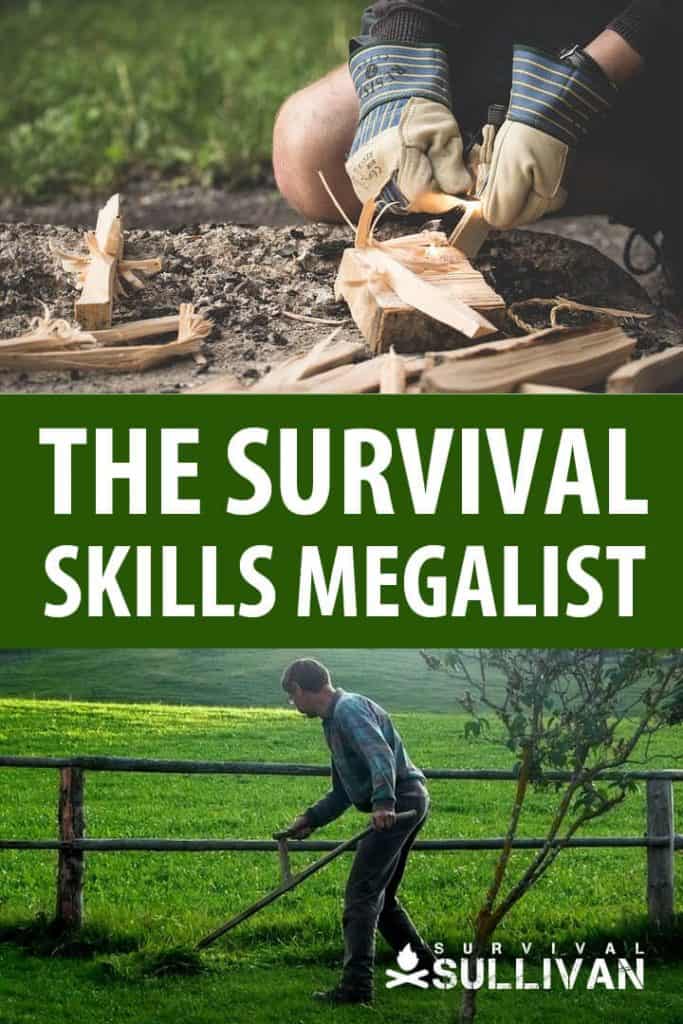

My dad was military. My grandfather was a cop. They served their country well. But I don’t like taking orders. I’m taking matters into my own hands so I’m not just preparing, I’m going to a friggin’ war to provide you the best of the best survival and preparedness content out there.

I don’t see soap making skill on the list.
yes, soap making is a skill everyone should learn. the cold process method should be learned first as you can make soap out of shortning this way. if a store of any kind has a bakery to make donuts in shop they will discard used shortning. the “casey’s near where i use to live put the shortning out back in used food grade icing buckets. i was hording these buckets for just the free food grade bucket and decided to do a google search to convert the shortning to bio diesel. found out i could make soap. first attempt i ended up with 60 pounds of soap, then converted 1/2 of that to liquid laundry soap. if you do a search you can find a list of ingredients in “fells naptha” soap. when you read the ingredients you will never buy it again. i use to give away the laundry soap. i ground up every bit of the pure soap with a “salad shooter” as i used silicone muffin molds to form my soap cakes. then used a clean sock to put the ground soap in to wash with when i took a shower. 30 pounds of soap will last many years!! i still have over 100 buckets of this used shortning
You have “fixing your tent” and then go onto Hunting. What about Fixing the tent?